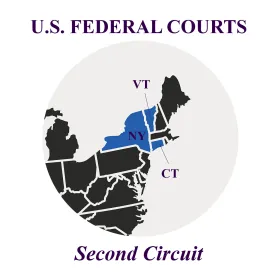On August 3, 2020, the United States District Court for the Southern District of New York struck down portions of the DOL’s Final Rule regarding who qualifies for COVID-19 emergency paid sick leave under the Emergency Paid Sick Leave Act (“EPSLA”) and the Emergency Family and Medical Leave Expansion Act (“EFMLEA”), collectively referred to as the Families First Coronavirus Response Act (“FFCRA”).
Of particular importance to retail employers, the Court invalidated two provisions of the DOL’s Final Rule pertaining to: (1) conditioning leave on the availability of work and (2) the need to obtain employer consent prior to taking leave on an intermittent basis.
Neither the EPSLA nor the EFMLEA contains an express “work availability” requirement. The EPSLA grants paid leave to employees who are “unable to work (or telework) due to a need for leave because” of any of six COVID-19-related criteria. FFCRA § 5102(a). The EFMLEA similarly applies to employees “unable to work (or telework) due to a need for leave to care for . . . [a child] due to a public health emergency.” FFCRA § 101(a)(2)(A). In its Final Rule, the DOL concluded that these provisions do not reach employees whose employers “do not have work” for them, reasoning a work-availability requirement is justified “because the employee would be unable to work even if he or she” did not have a qualifying condition set forth in the statute.
In rejecting the DOL’s interpretation, the Court stated that “the agency’s barebones explanation for the work-availability requirement is patently deficient,” given that the DOL’s interpretation “considerably narrow[s] the statute’s potential scope.” Under the Court’s interpretation, employees are entitled to protected leave under either the EPSLA or EFMLEA if they satisfy the express statutory conditions, regardless of whether they are scheduled to work during the requested leave period.
The Court also rejected part of the DOL’s interpretation that employees are not permitted to take the protected leave on an intermittent basis unless they obtain their employer’s consent. As an initial matter, the Court upheld the DOL’s interpretation that employees cannot take intermittent leave in certain situations in which there is a higher risk that the employee will spread COVID-19 to other employees (i.e., when the employees: are subject to government quarantine or isolation order related to COVID-19; have been advised by a healthcare provider to self-quarantine due to concerns related to COVID-19; are experiencing symptoms of COVID-19 and are taking leave to obtain a medical diagnosis; are taking care of an individual who either is subject to a quarantine or isolation order related to COVID-19 or has been advised by a healthcare provider to self-quarantine due to concerns related to COVID-19).
In those circumstances, the Court agreed that a restriction on intermittent leave “advances Congress’s public-health objectives by preventing employees who may be infected or contagious from returning intermittently to a worksite where they could transmit the virus.” Therefore, in those situations, employees are only permitted to take the protected leave in a block of time (i.e., a certain number of days/weeks), not on an intermittent basis. As a result, the Court upheld the DOL’s restriction on intermittent leave “insofar as it bans intermittent leave based on qualifying conditions that implicate an employee’s risk of viral transmission.”
The Court, however, rejected the requirement that employees obtain their employer’s consent before taking intermittent leave in other circumstances (i.e., when an employee takes leave solely to care for the employee’s son or daughter whose school or place of care is closed). In doing so, the Court ruled that the DOL failed to provide a coherent justification for requiring the employer’s consent, particularly in situations in which the risk of viral transmission is low. The Court’s opinion brings the EPSLA and EFMLEA in line with the existing FMLA, which does not require employer consent.
It is unclear if the DOL will challenge the Court’s decision or revise its Final Rule to bring it in compliance with the Court’s opinion. Regardless, the Court’s decision takes effect immediately and retail employers should be mindful of this ruling and revisit their COVID-19 leave policies.






 />i
/>i

